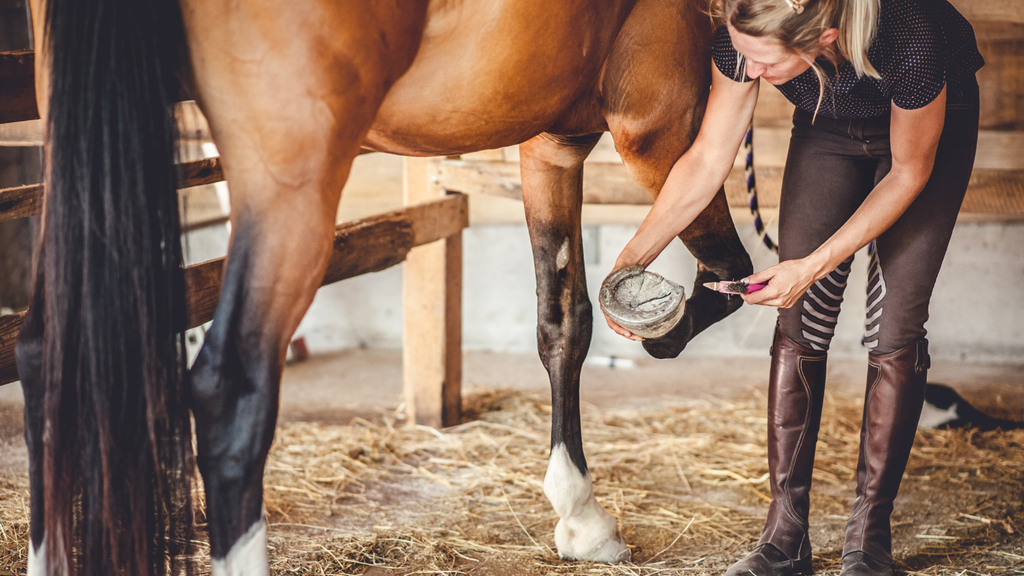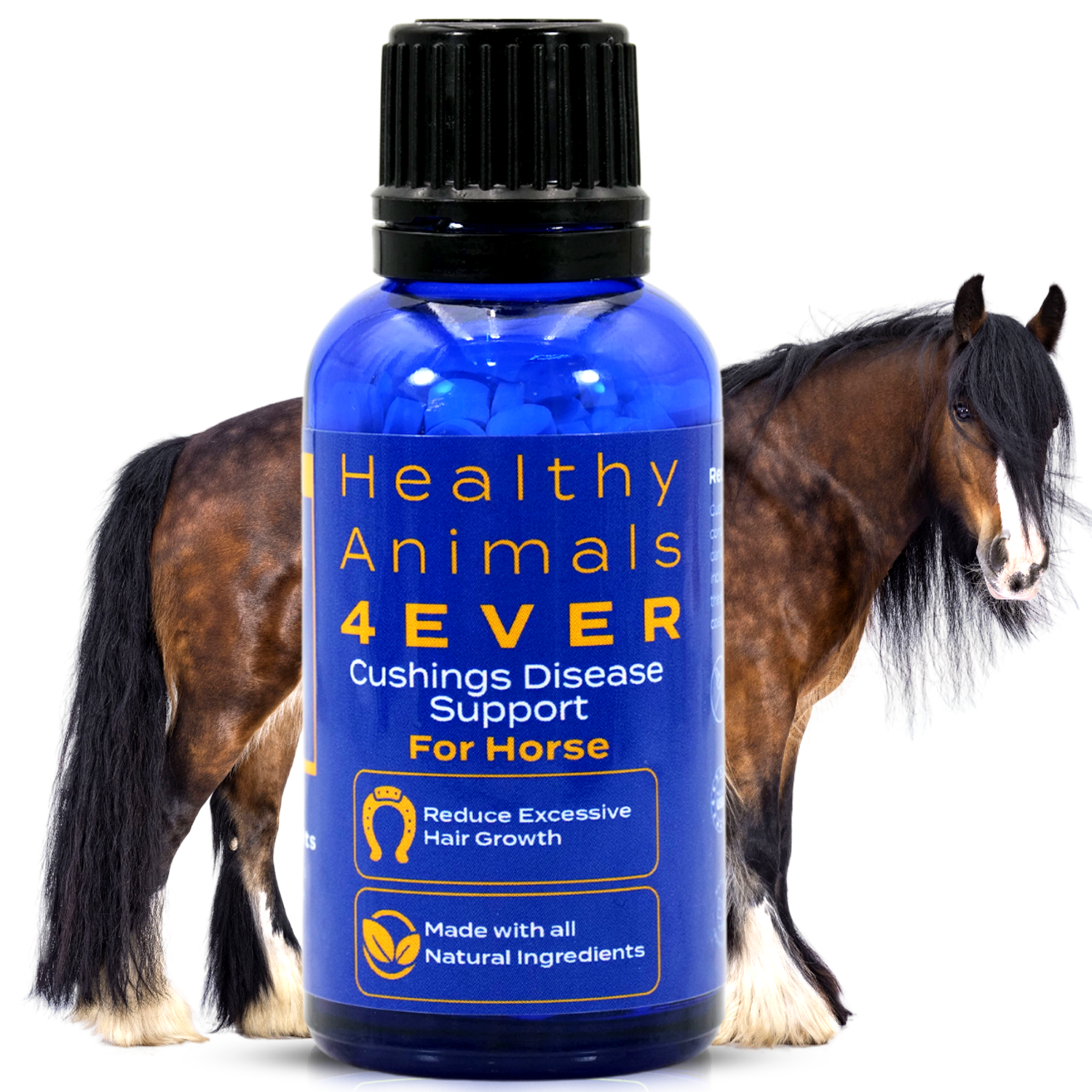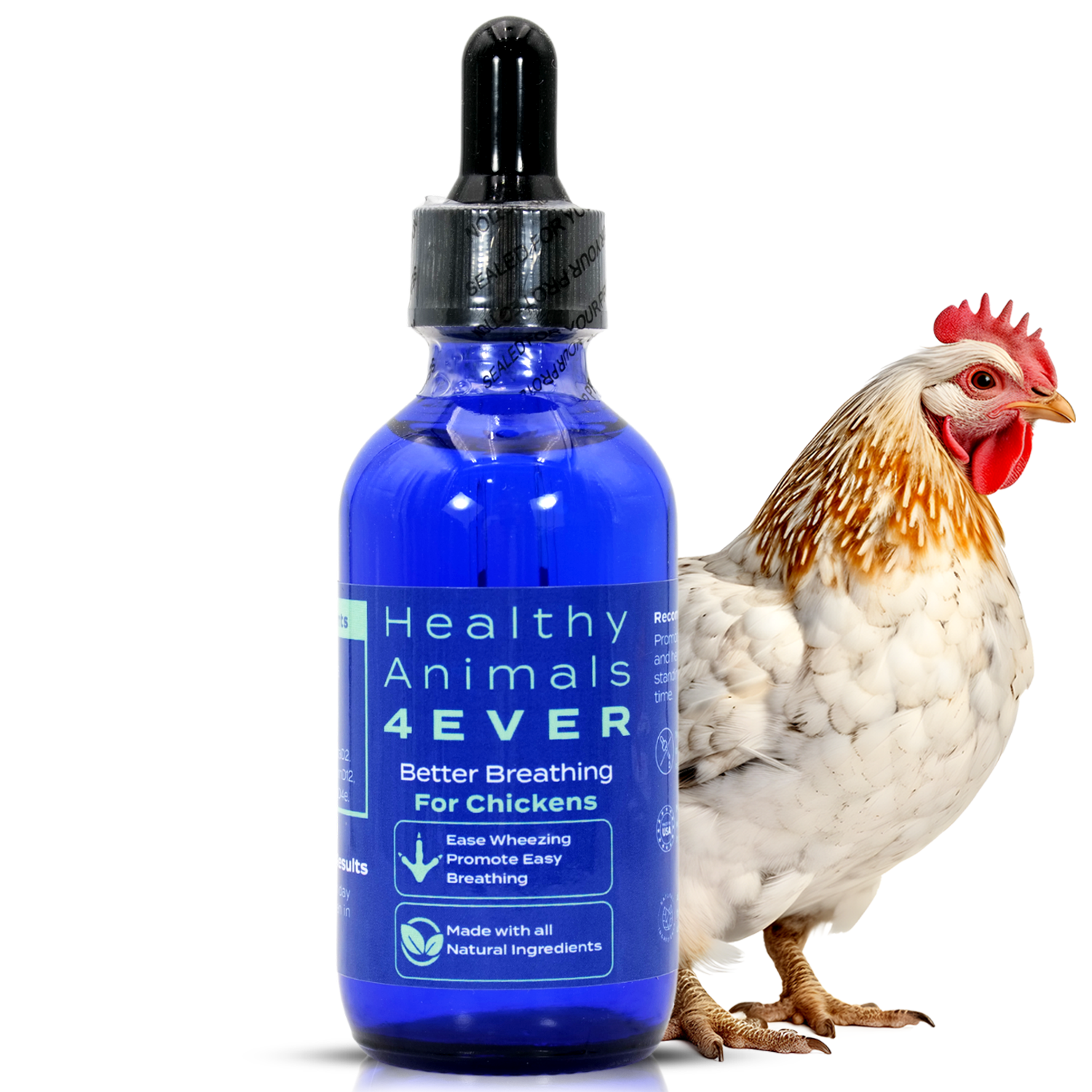Common Health Problems in Horses: A Comprehensive Guide
Have you ever had to deal with colic, laminitis, or another major health scare in your horse? What helped you get through it?
Caring for a horse involves recognizing subtle signs indicating something might be wrong. Unlike dogs or cats, horses can’t curl up at your feet when they’re not feeling well. They tend to hide signs of pain or discomfort until things get serious. That’s why staying informed and being proactive about horse health can make all the difference.
Also, let’s not forget that horses are a big investment, emotionally and financially. Vet bills, downtime, and stress can add up quickly if you miss early warning signs. So, learning to spot red flags early is one of the best things you can do for your horse and your peace of mind.
Today, we’re covering the 10 most common health problems in horses, including digestive issues, lameness, respiratory concerns, immune system, and more. So, you know what to watch for, how to respond, and when to call the vet.

10 Common Health Problems in Horses
The key to good horse care is knowing what to look for early and responding quickly.
Let’s walk through some of the most common health issues horse owners should know about and how to manage them.
1. Colic
Colic is one of the most dreaded words in the horse world. It refers to abdominal pain, but the severity can range from mild gas discomfort to intestinal twists. It often comes on suddenly and can escalate quickly
Colic Support is a natural horse colic remedy. Useful for colic and related issues. Provides natural support for abdominal pain, bloating, and discomfort. All-natural formula. Safe and gentle for all horse breeds.
You might notice your horse with these symptoms:
-
Pawing or kicking at the belly
-
Rolling or lying down repeatedly
-
Lack of appetite
-
No manure output
-
Restlessness or sweating
Causes: There are many different causes of colic, including sudden feed changes, poor dental health, dehydration, high-grain diets, or even stress. Horses have sensitive digestive systems, and something as simple as a change in hay can throw things off balance.
It’s not always possible to pinpoint a cause, but prevention starts with a consistent routine, plenty of clean or fresh water, regular turnout and exercise, and slow feed transitions.

2. Laminitis (Founder)
Laminitis is a painful and serious condition affecting the sensitive tissues inside a horse's hoof. It can come on suddenly and is extremely painful.
Laminitis Support is a natural remedy for horse Laminitis. Recommended for inflamed hooves, pain, and discomfort. Supports healthy hoof growth. All-natural formula. Suitable for horses of all ages and activity levels. Easy to take.
Laminitis usually causes issues like:
-
Reluctance to move, especially on hard ground
-
Rocking back to relieve pressure on the front feet
-
Heat in the hooves
-
Lameness
Causes: This condition is most commonly triggered by metabolic imbalances, such as overconsumption of sugar-rich grass or grain, obesity, or illnesses like Cushing's disease. It can also occur after severe infections or as a result of excessive concussion on hard surfaces.
Early detection and treatment are key. If you notice your horse shifting weight off their front feet, walking stiffly, or acting painful, call your vet.
Prevention involves managing weight, monitoring diet (especially in spring when grass is rich), and being cautious with grain.

3. Equine Influenza (Horse Flu)
Equine influenza is a contagious viral infection that affects the respiratory system. It spreads quickly through barns, trailers, and at shows, especially when horses are stressed or unvaccinated. It can knock your horse off their game and lead to complications if untreated.
Common symptoms include:
-
Persistent cough
-
Nasal discharge
-
Fatigue
-
Loss of appetite
Causes: Exposure to infected horses or contaminated equipment. It spreads quickly in barns, shows, or during travel.
Some horses recover quickly with rest, while others may need more time, especially if complications develop.
The best defense is prevention. Annual vaccinations, good hygiene, and quarantining new or sick horses can help limit outbreaks. If your horse gets the flu, keep them rested, hydrated, and in a clean, dust-free environment until they fully recover.

4. Equine Arthritis and Joint Problems
Arthritis is one of the most common issues in older horses or those with heavy workloads. Over time, wear and tear on joints leads to inflammation, stiffness, and pain.
Arthritis Support is a natural remedy for arthritis in horses. Helps with arthritis pain and inflammation. Provides targeted joint health support. All-natural formula. Safe and gentle for all horse breeds.
You might see signs like:
-
Stiffness after rest
-
Swollen joints
-
Shortened stride
-
Resistance to work
-
General decrease in performance
Causes: Aging, past injuries, hard or repetitive work, poor conformation.
While it can’t be cured, it can be managed. Many horses continue to live comfortably with the help of joint supplements, anti-inflammatory medications, and modified exercise routines. Your vet might also recommend injections or therapies like acupuncture, depending on the case.
Preventing arthritis starts early: avoid overworking young horses, always warm up and cool down properly, and keep your horse at a healthy weight to reduce joint strain. Regular farrier visits and supportive footing also make a big difference.

5. Respiratory Issues (Heaves/RAO)
Respiratory issues like Heaves (also called Recurrent Airway Obstruction) are similar to asthma in humans. They can be triggered by allergens like dust, mold, or pollen.
Respiratory Issues Support is designed to address respiratory concerns. Promotes comfortable breathing and clear respiratory function. Soothes irritation naturally. Helps with coughing, congestion, and labored breathing. All-natural formula. Safe and gentle for all horse breeds.
Horses with Heaves may have symptoms of:
-
Chronic coughing
-
Labored breathing
-
Nasal discharge
-
Flared nostrils
-
Poor performance or decreased stamina
Causes: Dusty hay, poorly ventilated barns, mold, pollen.
It’s more common in horses kept in dusty environments or fed dry hay. Over time, Heaves can seriously impact your horse’s quality of life if unmanaged.
Managing Heaves involves removing triggers: feed dust-free hay (or soak it), keep stalls clean, and improve ventilation. Some horses may need bronchodilators or steroids during flare-ups. With the right environment and care, many horses with respiratory issues can still lead active lives.

6. Skin Conditions (Rain Rot, Sweet Itch, Ringworm)
Horses can suffer from a variety of skin conditions.
Rain Rot is a bacterial infection caused by prolonged wetness. It shows up as crusty scabs and hair loss. Sweet Itch is an allergic reaction to insect bites, usually midges, and causes intense itching and hair loss, especially around the tail and mane. Ringworm, a fungal infection, presents as round, hairless patches and is highly contagious.
Skin Conditions Support offers natural support for horses' skin health. Recommended for skin issues like itching, redness, and inflammation. Promotes healthy and comfortable skin. All-natural formula. Safe and gentle for all horse breeds.
Common symptoms include:
-
Scabby or crusty skin
-
Intense itching
-
Bald spots or hair loss
-
Red, irritated patches
Causes: These issues are linked to environmental conditions or grooming habits. A damp coat, insect exposure, or shared grooming tools can all contribute.
Treatment depends on the condition, but often includes topical creams and improved hygiene practices. For Sweet Itch, fly sheets and insect repellents are essential. With skin problems, early detection and prevention are your best bet: don’t forget to wash those brushes and tack regularly.

7. Parasite Infestations (Internal & External)
Parasites are a constant threat, both inside and out. Internal parasites (like worms) can cause weight loss, poor coat condition, colic, or diarrhea. External parasites (like lice, ticks, or mites) lead to skin irritation, itching, and restlessness.
Symptoms of parasites include:
-
Weight loss
-
Rough or dull coat
-
Diarrhea
-
Itchy skin
-
Hair loss or tail rubbing
Causes: Exposure to contaminated pastures, poor hygiene, inconsistent deworming.
The problem is, you often won’t see signs until it’s advanced. That’s why routine fecal exams and a strategic deworming plan are essential. Natural dewormers made from herbs can be great options in this case.
Groom regularly, check for ticks, and keep their living area clean and dry to prevent infestations.

8. Dental Problems
A horse’s teeth grow continuously throughout their life. As a result, sharp edges or uneven wear can develop, making it painful to chew.
Dental Issues Support is a natural dental health remedy. Helps minimize oral discomfort and inflammation. Promotes healthy gums and teeth. All-natural formula. Safe and gentle for all horse breeds.
Common signs of dental problems include:
-
Dropping feed
-
Head tossing
-
Excessive drooling
-
Weight loss
-
Resistance to the bit
Causes: Normal tooth growth, misalignment, aging.
Left unchecked, dental issues can lead to weight loss, behavior problems, and even colic. That’s why routine dental checks are so important: most horses should have their teeth examined at least once a year.
To manage these problems, floating (filing) the teeth helps remove sharp points and correct unevenness. If your horse is older, has a history of dental issues, or is showing signs of discomfort, more frequent checks may be needed.

9. Hoof-Related Issues (Thrush, Abscesses, Cracks)
Your horse’s hooves are everything. Conditions like Thrush (a bacterial infection of the frog), hoof abscesses (pockets of infection), or hoof cracks can cause serious lameness and pain if not addressed.
Hoof Issues Support is a natural remedy for hoof-related issues. Helps with cracked hooves, brittleness, and discomfort during movement. Promotes healthy hoof growth while soothing irritation. All-natural formula. Safe and gentle for all horse breeds.
Symptoms:
-
Foul odor from the hoof (Thrush)
-
Sudden, severe lameness (Abscess)
-
Visible cracks or chips
Causes: Wet or dirty conditions, lack of hoof care, poor diet, or trauma.
Thrush has a telltale foul odor and black discharge. It thrives in wet, dirty environments. Abscesses often come on suddenly with severe lameness and heat in the hoof. Cracks may look minor, but can deepen and lead to infections or imbalances.
Daily hoof picking, regular farrier visits, and keeping stalls clean and dry go a long way in preventing hoof issues. If you suspect an abscess or infection, soak the hoof and call your vet or farrier for help.

10. Equine Protozoal Myeloencephalitis (EPM)
EPM is a neurological disease in horses caused by a tiny parasite called Sarcocystis neurona. It’s not contagious between horses but can cause some serious problems if your horse gets it.
Equine Protozoal Myeloencephalitis (EPM) Support is a natural remedy for EPM. Helps with muscle weakness and lack of coordination. Promotes nerve regeneration, motor control, and vitality. Supports the immune system and aids in easing inflammation within the central nervous system. All-natural formula. Safe and gentle for all horse breeds.
Signs to watch for include:
-
Unsteady walking or stumbling
-
Muscle weakness or atrophy
-
Sudden changes in behavior or personality
-
Difficulty swallowing or chewing
Causes: The parasite usually comes from opossum poop that contaminates feed or water. Horses get infected by accident when they eat or drink something contaminated.
There’s no perfect cure, but early treatment and natural remedies can help most horses recover. The key is to catch it early and get your vet involved quickly.
To keep your horse safe, try to keep feed and water covered and away from wildlife like opossums. Also, clean up around the barn to reduce places where these critters can hang out. EPM isn’t super common everywhere, but it’s definitely something to keep on your radar if your horse starts acting off.

Natural & Supportive Remedies
When it comes to keeping our horses healthy, more owners today are leaning into natural options to support overall wellness. And it’s easy to see why. Natural remedies—like herbs, tissue salts, and homeopathic blends—can be gentle yet powerful, especially when used for ongoing support or mild health concerns. They’re not meant to replace your vet, but they can definitely become a helpful part of your horse’s care routine.
Let’s talk about how these remedies work and when they’re most useful.
Safe Herbal and Homeopathic Supports for Common Issues
Natural doesn’t mean ineffective—and when it comes to horses, safe, plant-based or mineral-based remedies can actually do a lot. Whether you’re dealing with stress, digestion, skin issues, or joint stiffness, there’s usually a gentle, natural way to help your horse feel better.
(insert image)
Homeopathic Solutions for Horses:
-
Got a horse that spooks easily or gets anxious during travel or storms? Calming blends made from chamomile, valerian, or passionflower can ease anxiety and their nerves without knocking them out.
-
For digestive upset or mild colic, ingredients like peppermint, slippery elm, or homeopathic Nux Vomica may help settle the gut naturally.
-
If your horse struggles with itchy skin, rain rot, or minor wounds, herbal sprays and creams (think calendula or tea tree) can calm the irritation and support healing.
-
And for horses with joint stiffness or soreness, there are natural remedies like Arnica Montana or Ruta Graveolens, which are known to ease inflammation and promote comfort.
-
In homeopathy, Hypericum Perforatum is often called the "Arnica of the nerves", meaning it's useful when there's trauma involving nerve-rich areas, like the spine, hooves, or tail.
Here at HealthyAnimals4ever, we offer natural support specifically made for horses. Our formulas are designed to work with the body, helping to balance and strengthen rather than just mask symptoms. All of our remedies are 100% safe, non-toxic and easy to use, making them a great fit for holistic horse care.

The Bottom Line
At the end of the day, being a good horse owner means staying observant, asking questions, and responding quickly when something feels off. The key is consistency and early action. Don’t underestimate the power of routine checks, balanced nutrition, clean water, and a little daily bonding time.
And remember, you don’t have to go through it alone—your vet, farrier, and even natural remedies can all work together to help your horse live a longer, healthier, and more comfortable life. Because healthy horses start with informed, caring humans.







